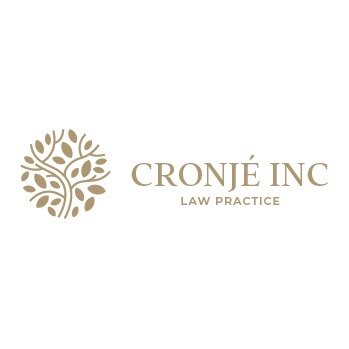Best Probate Lawyers in Namibia
Share your needs with us, get contacted by law firms.
Free. Takes 2 min.
Or refine your search by selecting a city:
List of the best lawyers in Namibia
About Probate Law in Namibia:
Probate is the legal process of distributing a deceased person's assets according to their will or the law. In Namibia, the Master of the High Court oversees the probate process and ensures that the deceased person's estate is distributed correctly.
Why You May Need a Lawyer:
You may need a lawyer in probate cases if there are disputes over the deceased person's will, if the estate is complex, if there are creditors making claims against the estate, or if you are unsure about the probate process.
Local Laws Overview:
In Namibia, probate is governed by the Administration of Estates Act, which outlines the rules and procedures for the distribution of a deceased person's estate. The Master of the High Court is responsible for overseeing the probate process and ensuring that the deceased person's assets are distributed correctly according to the law.
Frequently Asked Questions:
1. What is probate?
Probate is the legal process of distributing a deceased person's assets according to their will or the law.
2. How long does the probate process take in Namibia?
The probate process can vary in length depending on the complexity of the estate and any disputes that may arise. It can take anywhere from a few months to several years.
3. Do I need a lawyer for probate in Namibia?
While it is not required to have a lawyer for probate in Namibia, it is advisable to seek legal assistance, especially if the estate is complex or if there are disputes.
4. What happens if there is no will?
If there is no will, the deceased person's assets will be distributed according to the law of intestate succession in Namibia.
5. How are creditors handled in the probate process?
Creditors must make claims against the deceased person's estate within a specified period. These claims are then paid out of the deceased person's assets before the rest of the estate is distributed to the beneficiaries.
6. How can I contest a will in Namibia?
If you believe a will is invalid, you can contest it by lodging a formal objection with the Master of the High Court. This will initiate a legal process to determine the validity of the will.
7. Can I be removed as an executor of a will?
If you are an executor of a will and wish to be removed, you can resign from your position. Alternatively, beneficiaries or interested parties can apply to the court to have you removed if there are valid reasons for doing so.
8. What are the duties of an executor in Namibia?
An executor is responsible for managing the deceased person's estate, paying debts and taxes, distributing assets to beneficiaries, and ensuring that the probate process is carried out correctly.
9. How are estate taxes handled in Namibia?
Estate taxes, known as estate duty, may be payable on the deceased person's estate if it exceeds a certain threshold. This tax is calculated based on the total value of the estate and must be paid before the estate can be distributed to beneficiaries.
10. Can I handle probate on my own without a lawyer?
While it is possible to handle probate on your own in Namibia, it is advisable to seek legal assistance to ensure that the process is carried out correctly and to avoid any potential issues or disputes that may arise.
Additional Resources:
If you need legal assistance with probate in Namibia, you can contact the Law Society of Namibia or speak to a local probate lawyer for advice and guidance.
Next Steps:
If you require legal assistance with probate in Namibia, you should consult with a probate lawyer who can guide you through the process, help you resolve any disputes, and ensure that the deceased person's estate is distributed correctly according to the law.
Lawzana helps you find the best lawyers and law firms in Namibia through a curated and pre-screened list of qualified legal professionals. Our platform offers rankings and detailed profiles of attorneys and law firms, allowing you to compare based on practice areas, including Probate, experience, and client feedback.
Each profile includes a description of the firm's areas of practice, client reviews, team members and partners, year of establishment, spoken languages, office locations, contact information, social media presence, and any published articles or resources. Most firms on our platform speak English and are experienced in both local and international legal matters.
Get a quote from top-rated law firms in Namibia — quickly, securely, and without unnecessary hassle.
Disclaimer:
The information provided on this page is for general informational purposes only and does not constitute legal advice. While we strive to ensure the accuracy and relevance of the content, legal information may change over time, and interpretations of the law can vary. You should always consult with a qualified legal professional for advice specific to your situation.
We disclaim all liability for actions taken or not taken based on the content of this page. If you believe any information is incorrect or outdated, please contact us, and we will review and update it where appropriate.
Browse probate law firms by city in Namibia
Refine your search by selecting a city.













